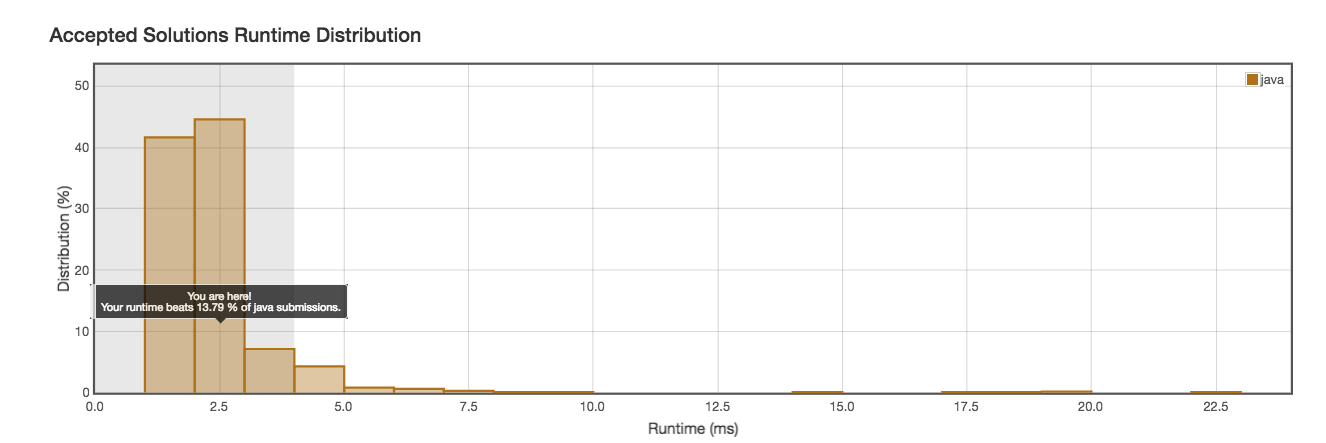Description
Given a nested list of integers, return the sum of all integers in the list weighted by their depth.
Each element is either an integer, or a list – whose elements may also be integers or other lists.
Example 1:
Given the list [[1,1],2,[1,1]], return 10. (four 1’s at depth 2, one 2 at depth 1)
Example 2:
Given the list [1,[4,[6]]], return 27. (one 1 at depth 1, one 4 at depth 2, and one 6 at depth 3; 1 + 42 + 63 = 27)
DFS solution
Complexity Analysis
The algorithm takes O(N)O(N) time, where NN is the total number of nested elements in the input list. For example, the list [ [[[[1]]]], 2 ] contains 44 nested lists and 22 nested integers (11 and 22), so N=6N=6.
In terms of space, at most O(D)O(D) recursive calls are placed on the stack, where DD is the maximum level of nesting in the input. For example, D=2D=2 for the input [[1,1],2,[1,1]], and D=3D=3 for the input [1,[4,[6]]].
/**
* // This is the interface that allows for creating nested lists.
* // You should not implement it, or speculate about its implementation
* public interface NestedInteger {
*
* // @return true if this NestedInteger holds a single integer, rather than a nested list.
* public boolean isInteger();
*
* // @return the single integer that this NestedInteger holds, if it holds a single integer
* // Return null if this NestedInteger holds a nested list
* public Integer getInteger();
*
* // @return the nested list that this NestedInteger holds, if it holds a nested list
* // Return null if this NestedInteger holds a single integer
* public List<NestedInteger> getList();
* }
*/
public class Solution {
public int depthSum(List<NestedInteger> nestedList) {
return dfs(nestedList, 1);
}
private int dfs(List<NestedInteger> nestedList, int level) {
if (nestedList == null) return 0;
int sum = 0;
for (NestedInteger ni : nestedList) {
if (ni.isInteger()) {
sum += ni.getInteger() * level;
} else {
sum += dfs(ni.getList(), level+1);
}
}
return sum;
}
}
 Runtime: 2ms
Runtime: 2ms